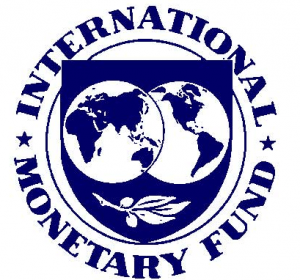IMF Ghana $918m facility to restore debt sustainability
 The Executive Board of the International Monetary Fund (IMF) says the three-year arrangement under the Extended Credit Facility (ECF) it has approved for Ghana is aimed at restoring the country’s debt sustainability.
The Executive Board of the International Monetary Fund (IMF) says the three-year arrangement under the Extended Credit Facility (ECF) it has approved for Ghana is aimed at restoring the country’s debt sustainability.
The Fund says it would also restore macroeconomic stability to foster a return to high growth and job creation, while protecting social spending.
Ghana would receive an immediate disbursement of about $114.8 million, the IMF says.
The Fund however, classified Ghana as “high risk of debt distress” under a new debt sustainability analyses (DSA).
“Countries classified as high risk are allowed to borrow on non-concessionnal terms only under exceptional circumstances. This will be one of the first tests of the implementation of the new debt limits policy,” the Fund says.
On February 26, 2015, the IMF announced that it reached a staff-level agreement with Ghana a three-year Extended Credit Facility (ECF) of $940 million, which intended to provide financing, policy direction and monitoring and addresses Ghana’s key credit weakness through prioritising fiscal consolidation, raising revenue and improving Central Bank credibility.
On March 29, 2015, the Minister of Finance, Seth Terkper told ghanabusinessnews.com in an interview that the IMF Board would approve the facility April 3, 2015.
Commenting on the approval, Min Zhu, Deputy Managing Director and Acting Chair of the IMF Board, said, “The new ECF-supported programme, anchored on Ghana’s Shared Growth and Development Agenda, aims at strengthening reforms to restore macroeconomic stability and sustain higher growth. The main objectives of the programme are to achieve a sizeable and frontloaded fiscal adjustment while protecting priority spending, strengthen monetary policy by eliminating fiscal dominance, rebuild external buffers, and safeguard financial sector stability.”
The IMF notes that Ghana has experienced strong and broadly inclusive growth over the last two decades and its medium-term economic prospects are supported by rising hydrocarbon production. However, emergence of large fiscal and external imbalances, compounded by severe electricity shortages, has put Ghana’s prospects at risks.
“In recent years, a ballooning wage bill, poorly targeted subsidies and rising interest payments outpaced rising oil revenue and resulted in double digit fiscal deficits. These imbalances have led to high inflation, a decline in reserves, a significant depreciation of the cedi and high interest rates, weighing on growth and job creation,” the Fund says.
According to the IMF Ghana’s growth decelerated markedly in 2014, to an estimated 4.2 percent, driven by a sharp contraction in the industrial and service sectors, noting that, “this was due to the negative impact of the currency depreciation on input costs, declining domestic demand and increasing power outages.”
The Fund also states that inflationary pressures rose on the back of a large depreciation of the cedi and the financing of the fiscal deficit by the Bank of Ghana (BoG).
“Despite several hikes in the policy interest rate in 2014 to 21 percent, headline CPI inflation reached 17.0 percent at end-2014, well above the 8 +/-2 percent target range of the BoG,” it says.
The IMF notes that the government’s three-year economic reform programme seeks among others to support growth and help reduce poverty by restoring macroeconomic stability through an ambitious and sustained fiscal consolidation, a prudent debt management strategy with improved fiscal transparency, and an effective monetary policy framework.
“The programme foresees a pick-up in economic growth, starting in 2016, supported by expected increases in hydrocarbon production. Lower inflation and interest rates, combined with a stable exchange rate environment would help support private sector activity. Increased oil exports and lower oil imports on the back of domestic gas production will support the improvement in the current account, which together with the surpluses on the financial and capital account will help build up gross reserves to a more adequate level over the medium term,” it says.
By Emmanuel K. Dogbevi
